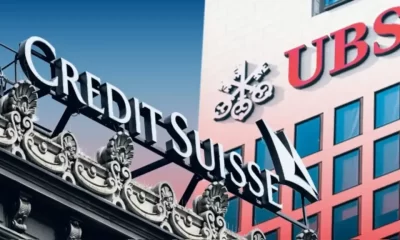Money
2023 Swiss Regulator: Credit Suisse Made ‘Serious Breach’ Of Law

GENEVA, Switzerland — Swiss regulators have determined that Credit Suisse committed a “serious breach” of law in connection with a now-bankrupt firm linked to Australian financier Lex Greensill and have launched an investigation that could result in penalties for four former bank executives.
FINMA, Switzerland’s financial markets authority, announced Tuesday that it had concluded enforcement proceedings against Credit Suisse that were initiated two years ago after bank partner Greensill Capital went bankrupt. At the time, Credit Suisse closed four funds that were linked to the partnership. About $10 billion was invested in these funds by bank clients.
Credit Suisse’s troubled ties to Greensill Capital were just one of a slew of issues that have resulted in repeated top-management shake-ups and corporate restructurings in recent years. Greensill Capital was also the subject of investigations in the United Kingdom, with allegations that the firm founded by Greensill, a former adviser to former British Prime Minister David Cameron, received lucrative government contracts before going bankrupt.
In Switzerland, FINMA announced that to conclude its investigation, Credit Swiss’s top executives must regularly review about 500 of its most important business relationships and record the responsibilities of about 600 of its highest-ranking employees. The authority also stated that it had opened four enforcement proceedings against former bank executives, whom it did not name.

FINMA announced that to conclude its investigation, Credit Swiss’s top executives
“FINMA came to the conclusion that Credit Swiss Group seriously broke its supervisory duty over the years by failing to identify, limit, and monitor risks in its business relationship with Lex Greensill,” it said. “FINMA thus concludes that a serious breach of Swiss supervisory law has occurred.”
The authority collaborates with financial institutions, including banks, insurance companies, and the Swiss stock exchange, to ensure proper internal controls and stability. FINMA’s ability to issue penalties is limited, but it does have the authority to revoke business licenses in extreme cases. If more severe penalties or fines are warranted, it is up to prosecutors to pursue them.
In Greensill’s “supply chain finance” model, his company acted as a middleman between businesses and their suppliers, paying invoices that suppliers issued to their customers in exchange for a fee. The claims against those customers were then converted into securities that could be sold. Financial products became far riskier than initially indicated over time.
Credit Suisse “made partly false and overly positive statements” to FINMA about how claims were chosen and the exposure to some debtors, according to FINMA.
Credit Suisse expressed its appreciation for the case’s resolution without naming Greensill. Since March 2021, the Zurich-based bank has taken steps to strengthen governance and control, including dismissing “several managers and employees” in its asset management division, among other things.
SOURCE – (AP)
































